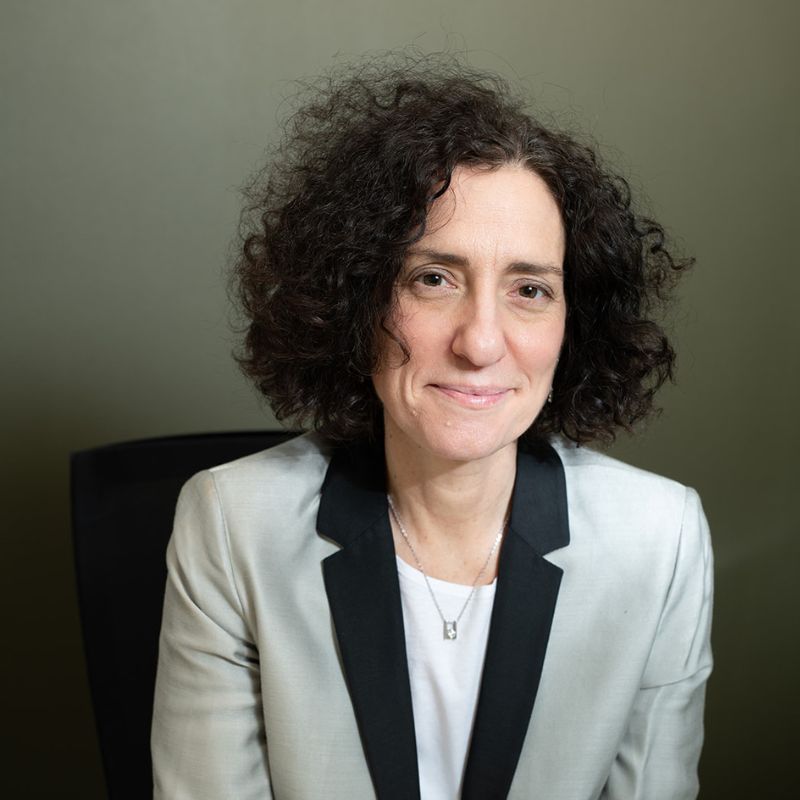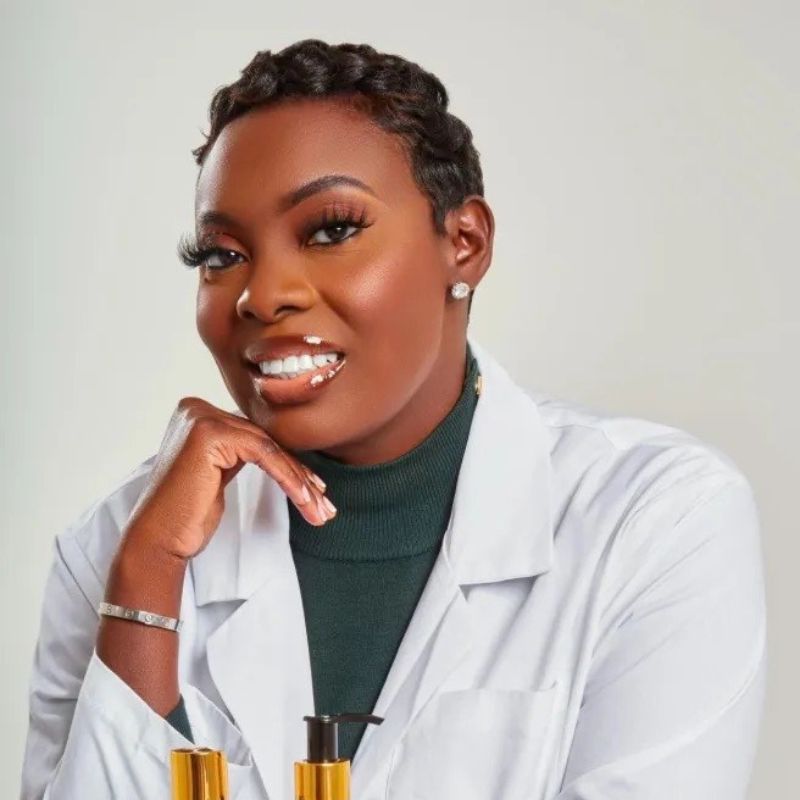What causes thinning hair in women? 7 common triggers, revealed by the experts
The causes of thinning hair in women range from lifestyle choices to medical conditions. These are the most common ones to look out for...

Wondering what causes thinning hair in women? While seeing changes in the thickness of your hair might be concerning, it's completely normal in many cases and not usually something to worry about.
All of our hair follicles undergo phases of growth, during which the hair lengthens, followed by a period of rest (called the telogen phase). This is when hair falls out and new hair replaces it. If something happens during the latter stage of this cycle to prevent the regrowth, some areas may start to thin out. It can also be one of the main causes of hair loss in women.
Our hair density and texture naturally change with age, but some lifestyle choices and health conditions may help speed things along. Most women won't experience widespread hair thinning like some men do, but it's normal to see the thickness of your hair dwindle. Here, woman&home speaks to several hair specialists - including transplant surgeons, trichologists, and nutritionists - to reveal what causes thinning hair in women and whether it can grow back.
What causes thinning hair in women?
Stress
Hair loss and hair thinning is one of the most common signs of high cortisol in women, says Eva Proudman, a certified trichologist. Whether it's constant minor stress that leads to habitual burnout, illness, or a stressful life event, the pressure this puts on the body can lead to telogen effluvium - a type of alopecia.
"The ends of the hair become very thin and straggly, which signals a disruption to the growing and shedding cycle of the hair," she notes. But, it's easy to treat and if the hair thinning is caused by stress, you'll likely see it grow again with time.

Eva Proudman is a clinical trichologist, who specialises in all areas of hair and scalp health. With her very own Harley Street clinic, Eva is one of the UK’s leading hair specialists with over 20 years of industry experience.
Menopause
One of the most common symptoms of menopause is hair thinning, says Dr Dilan Fernando, a hair transplant surgeon who founded The Treatment Rooms London. "It's thought to be caused by hormonal changes, particularly a drop in oestrogen levels," he notes. "This decrease in oestrogen can lead to a hormonal imbalance, resulting in excessive dihydrotestosterone (DHT), a hormone that contributes to female pattern hair loss."

Dr Fernando is an expert hair surgeon and co-founder of The Treatment Rooms London. He sat on the Executive Committee of the British Association of Hair Restoration Surgery from 2020-2024. Dr Fernando is committed to providing a high level of personalised service and ensuring a positive experience for his patients. He takes pride in being a meticulous and precise hair transplant surgeon, treating every hair as precious and ensuring they survive the procedure and grow into a dense, natural-looking hair transplant result.
Female androgenetic alopecia
Female androgenetic alopecia is a genetic condition that occurs when the hair follicles gradually shrink over time, in line with declining oestrogen levels and the onset of perimenopause symptoms. It tends to create shorter and thinner hair strands, making hair look thinner overall.
Sign up to our free daily email for the latest royal and entertainment news, interesting opinion, expert advice on styling and beauty trends, and no-nonsense guides to the health and wellness questions you want answered.
It's a condition that tends to present on the top of the scalp, where the centre parting starts to become wider and the scalp more noticeable, says Proudman, who is also the chairperson of the Institute of Trichologists. "The crown can seem to sit more open with thinning to the temple areas as well," she says.
Hair dying
If you dye your own hair, the chemicals in the dye could be to blame. These dyes can be what causes thinning hair in women as they weaken the hair protein, fracturing the strands and creating a thin appearance across the top of your head.
Perhaps unsurprisingly, it's the bleaching and lightening process that causes the most damage so when you stop doing this, you should see your hair begin to regrow again as normal.

Hormones
Along with the decline of hormones like oestrogen and progesterone, hair thinning can be caused by hormonal imbalances created by an overactive or underactive thyroid.
The thyroid is a small, butterfly-shaped gland at the bottom of the neck that produces two key hormones that affect every single cell in the body: thyroxine and triiodothyronine. Per research by Prince Sattam bin Abdulaziz University, about half of those with hyperthyroidism (overactive thyroid) and 33% of those with hypothyroidism (underactive) will experience some hair loss.
Polycystic ovary syndrome (PCOS) is another hormone-related condition that could cause hair thinning in women, as women's hormone specialist Dr Jan Toledano, who is also the owner of the London Hormone Clinic, points out. However, she notes that this only normally affects younger women or those diagnosed with early prediabetes.
Hair thinning can also be a side effect of synthetic hormones like progestins, which mimic the hormone progesterone and are included in medications like HRT, the Mirena coil, and some kinds of contraceptive pills.

Dr Jan Toledano is founder of the London Hormone Clinic and a pioneering doctor in hormonal medicine, is on a mission to change that by educating women that there is no need to suffer, and that HRT is safe.
Ilness
As noted, illness-related stress can cause hair loss. However, so can the illness itself - and most recently, doctors have begun to see the condition in those with long-Covid. "More recently I’ve seen that both male and female patients are experiencing long-term hair thinning after contracting Covid-19 and also experiencing long Covid," says Dr Matee Rajput, a hair transplant surgeon.
"It's also well known that the treatment a patient undergoes for cancer can affect hair all over their body," he says. "When someone is undergoing chemotherapy or radiotherapy, this can cause hair loss and affect the density of the hair, but it does grow back after treatment."

Dr Matee is the UKs leading celebrity hair transplant surgeon. He has over 15 years’ experience within his field and is an expert across all areas of hair loss. As a surgeon see’s just as many female patients as he does male patients. Not only does he specialise in hair, eyebrow and beard transplantations, but he is also a specialist in non-surgical hair loss prevention and often talks on topics relating to the causes of hair loss.
Diet
If your body lacks the essential nutrients it needs for hair growth, you'll likely see a change in the thickness and health of your hair, says trichologist Rachael Sey. "For example, it's been reported that you need biotin, vitamin D, and iron to help increase your hair growth."
Proudman agrees - it's important to investigate your diet if you're looking for what causes thinning hair in women. "We are what we eat has never been more true than for the hair. The hair follicle is the second fastest dividing cell in the body, but non-essential, therefore it is always at the bottom of the food chain and priority list."

Rachael Sey is a salon owner and trichologist. Working with all hair types but specialising in Afro hair. She has over 10 years experience working in the hair industry. She prioritises investing in hair growth and how to maintain healthy hair. She suffered from hair loss problems and developed her own hair care line, which now consists of a shampoo, conditioner and hair gummies all with the aim to enhance and increase hair Growth. With direct experience of suffering from hair loss, she understands how stressful it can be . Rachael hopes to educate people on how to manage and keep healthy hair and growth due to her extensive experience.
How do you fix thinning hair in women?
First things first, Proudman says, if you see an increase in hair shedding, thinning, itching, burning, or flaking, you should visit your GP or a trichologist. They will be able to diagnose the condition, start to figure out your cause of hair thinning, propose any immediate treatment options and help you learn how to get thicker hair again.
"I have a busy clinical practical seeing about 250 patients every month and I can honestly say it's rare there's nothing we can do [about hair thinning]," says Proudman. "I don't accept that it's due to age or menopause. We can support, manage, improve, or cosmetically cover [hair thinning] to ensure you have the best hair possible."
Are vitamin deficiencies linked to thinning hair in women?
Yes, absolutely. In extreme cases, your diet and nutrition habits can lead to nutritional deficiencies that limit hair growth or cause it to start thinning. These are the ones to look out for:
- Iodine: Iodine is needed to produce thyroid hormones. Nutritional therapist Joanna Lyall says an iodine deficiency can be linked to thyroid problems in turn, which can cause hair thinning.
- Iron: Low iron levels can disrupt blood flow and nutrients getting to the hair follicle.
- Vitamin B12: Vitamin B12 helps the body use amino acids, which make up the building blocks of our hair. A vitamin B12 deficiency can lead to excess shedding.
- Vitamin C: "Vitamin C supports iron absorption and helps produce collagen, which strengthens the capillaries that feed the hair shaft," says Lyall, the founder of The Better Menopause.
- Omega-3: Omega-3 supports hydration of the scalp and hair shaft.
- Vitamin D: This vitamin "supports hair follicle cycling, supporting regrowth and hair thickness,” says the nutritionist.
- Magnesium: “Magnesium is involved in cellular regeneration and circulation to the scalp, helping to bring essential nutrients to the follicles, and [the benefits of magnesium include] encouraging healthy hair growth," says Aliza Marogy, nutritionist and founder of Inessa.
However, if you do think you have a vitamin deficiency, take a moment to pause before investing in supplements. "Low nutrient levels are often accompanied by other symptoms, including fatigue and low mood so it's a good idea to pay attention to these symptoms too," says nutritionist Eva Humphries.
If you have any concerns about hair thinning or the potential of a vitamin deficiency, speak to your doctor. They will run tests to diagnose a nutrient deficiency and advise appropriate treatment.
Can hair grow back after thinning?
Yes, in many cases, hair can grow back after thinning if the cause is diagnosed and treated or if the stressor is overcome. For example, if your hair thinning is caused by stress and burnout from work and you take a period of extended leave, or you stop using a hair dye that damages the follicles, your hair is no longer exposed to the cause of damage.
Naturally, however, this differs from person to person. It will depend on which of the causes of thinning hair in women you're experiencing, access to treatment options, and lifestyle factors.

Kat Storr has been a digital journalist for over 15 years after starting her career at Sky News, where she covered everything from world events to royal babies and celebrity deaths. After going freelance eight years ago, she now focuses on women's health and fitness content, writing across a range of UK publications.
From perimenopause to the latest fitness trends, Kat loves researching and writing about it all. She's happy to give any fitness challenge a go and speaks to experts about wellbeing issues affecting people every day.
